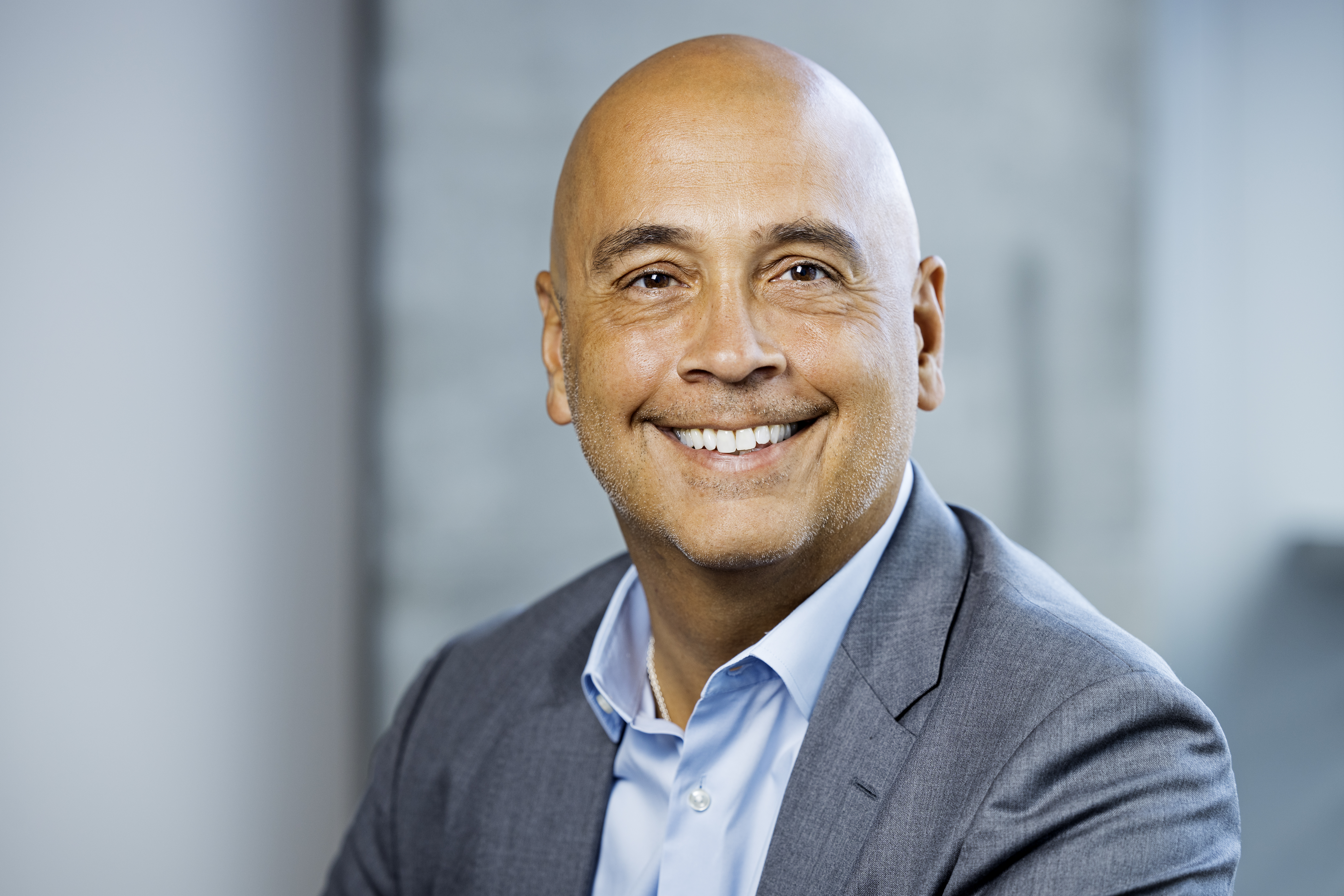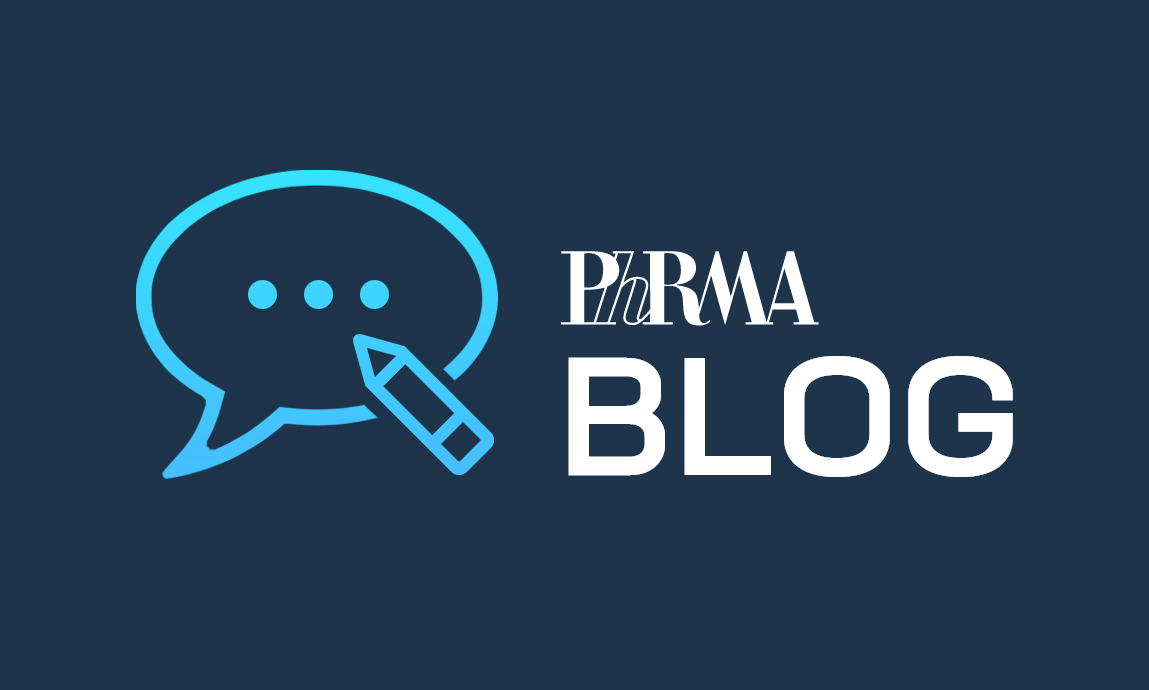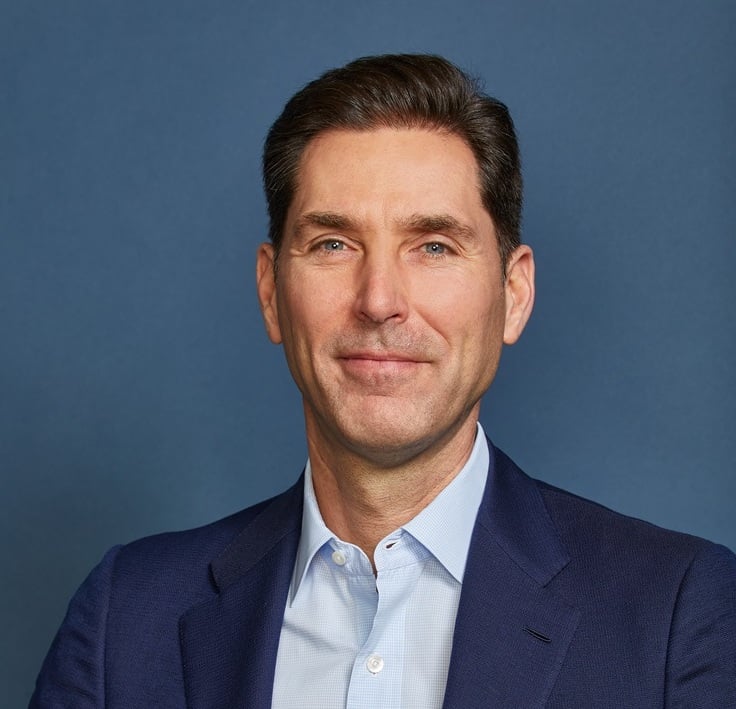 This year, our industry has been working around the clock to combat the COVID-19 virus, including developing effective therapeutics to treat COVID-19 and vaccines to prevent future infections.
This year, our industry has been working around the clock to combat the COVID-19 virus, including developing effective therapeutics to treat COVID-19 and vaccines to prevent future infections.
I had the opportunity to connect with Peter Anastasiou, Executive Vice President of Lundbeck, about the company’s efforts to fight COVID-19.
Stephen J. Ubl (SU): Much of the focus on COVID-19 has been on the physical impacts of the disease, but we are also seeing the mental health impacts. As we recognize Mental Illness Awareness Week, World Mental Health Day and Depression Awareness Month all in October, can you tell me more about Lundbeck’s efforts to combat the mental health effects of the pandemic?
Peter Anastasiou (PA): Absolutely and thank you for helping to shed light on this emerging health crisis. We know that the COVID-19 virus targets the lungs, and also the kidneys, liver and blood vessels. What we are now starting to understand is that there are serious and potentially long-lasting brain health implications as well.
There are reports of lingering “brain fog”, and some so-called long haulers report headaches and dizziness. While researchers are still working to understand the full neurological impact of the virus, we already know the mental health impacts are significant. Isolation, sadness, financial stress, childcare issues and general worries about the virus are causing many people to experience heightened mental health challenges. For example, some people with existing mental health disorders are experiencing a worsening of symptoms or relapse. This is especially heartbreaking for people with mental illnesses like depression and schizophrenia, many of whom fought for years to gain control of their disease and reclaim their lives.
We also are seeing a rise in new mental health concerns. In September, more than 30% of U.S. adults reported symptoms of anxiety or depression, according to a household survey by the National Center for Health Statistics. That’s up from about 11% in 2019. Another survey found that half of U.S. adults say their mental health has been negatively impacted by the pandemic. And some early research shows COVID-19 school closings may be linked to an increase in depressive symptoms among children and adolescents.
Just as with the virus itself, it is critical that we gain an understanding of the path and specific impacts of the COVID-19 mental health crisis. We need to know where there are spikes in mental illness and the various ways the pandemic is impacting different communities’ mental health. This is why Lundbeck is excited to partner with Mental Health America (MHA) on a groundbreaking initiative that will help identify mental illness hotspots and develop appropriate responses. The initiative, announced this month, will analyze the extensive data set generated by MHA’s online mental health screenings, plus publicly available screening data sets, to create a nationwide mental health dashboard. Real-time analysis will allow the nation to recognize and react quickly; and the population-based insights can help policymakers, communities and health care providers allocate the right resources, address health disparities and tailor interventions as needed.
As a longtime leader in brain health, we are proud to be at the forefront of this issue and excited to be partnering with MHA in this effort to flatten the pandemic’s mental illness curve.
SU: That’s exciting to hear. Continuing our focus on COVID-19: We know that the pandemic has presented tremendous challenges for our industry. Can you speak to the work Lundbeck has done to ensure patients have continued access to their medicines during this crisis?
PA: While COVID-19 has led to slow-downs and lock-downs across the globe, we know that brain diseases don’t pause. That’s why, since the earliest days of the pandemic, our priority has been protecting our supply chain and ensuring that the people who depend on our medicines have uninterrupted access. We are an essential industry, so at each of our production facilities in Denmark, France, Italy and the United States, our colleagues continued working, unabated – safely and in accordance with local health guidance – so that we could ensure access to our medicines.
We also launched a new treatment just weeks after the pandemic was declared and the United States went on lock-down. This is our therapy for preventive treatment of migraine. While this was extremely challenging, we did it because we know there is great unmet need in migraine care – an estimated 39 million Americans live with migraine – and there were patients and health care providers waiting for this new treatment option.
We understand that there is a strong connection between migraine and mental health. Because stress can trigger migraine attacks, we were concerned that the conditions of the pandemic would put some people at greater risk for migraine attacks. And, in fact, one recent survey of people living with migraine found that the COVID-19 pandemic has resulted in people experiencing heightened stress and increased frequency of migraine attacks.
SU: Lundbeck is tackling additional challenging brain diseases like depression schizophrenia, Parkinson’s, Alzheimer’s and PTSD. Can you break down why these disease states present such challenges and how you are approaching them?
PA: As you said, brain diseases are challenging, and brain research is arguably the most difficult area of science. Central nervous system (CNS) drugs have higher failure rates than non-CNS drugs, and we have faced our own fair share of setbacks. One of the main impediments to progress is the lack of biomarkers. Unlike heart disease or diabetes, there is no blood test that can definitively diagnose a condition or gauge treatment efficacy. That is why we are involved in rigorous biomarker research. We understand that diseases may share underlying mechanisms that trigger similar symptoms. Honing in on the underlying biology will allow us to target therapies with much more precision and, hopefully, effectiveness.
We also are approaching brain diseases through new pathways. For example, scientists at our Lundbeck La Jolla Research Center are exploring various ways to modulate the endocannabinoid system, a complex neurotransmitter system that seems to be involved in a range of psychiatric and neurological disorders, including pain. Through our work in this area, we are exploring options for complex brain diseases, as well as non-opioid pain therapies. Because while the pandemic is the focus of so much of our attention, the nation’s opioid crisis hasn’t resolved. In fact, the pandemic seems to be escalating it, as there is a reported increase in opioid fatalities since the part of the pandemic. With so many lives lost, and communities decimated by this crisis, advancing non-opioid treatment options for chronic pain remains a critical priority.
Finally, rates of PTSD are reportedly on the rise among first responders and health care workers, as well as people impacted by the virus. This is a complex and challenging disorder for which the current treatments leave many unmet needs. With Otsuka Pharmaceuticals, we are advancing a potential treatment for this disorder, currently in Phase 3 trials, because we understand the pain this disorder causes, and we recognize that millions of people now – and likely more in the near future – need relief.
SU: While mental health issues may now be heightened, they certainly are not new. For too long, people with mental illness have suffered in the shadows. On that note, Lundbeck has been vocal on fighting the stigma of mental illness. Can you tell me more about why this is so important?
PA: We are heartened to see the national conversations around mental health, and we hope this leads to a permanent shift in how we think and talk about mental illness. As an organization with a 70+-year history in brain health, we have long advocated for open and honest dialogue around mental health. There are effective treatments available for mental health disorders like depression, but if people feel stigmatized – by their family, friends, employer or even their own personal biases – they are less likely to raise their hand and seek the help they may need.
Our industry supports more than 4 million jobs across the country, and as employers, we have the opportunity to lead on this issue. Our organizations are based in science and we have a platform to help our communities and own workforces understand that mental illness is not a sign of weakness or lack of will. At Lundbeck, we are helping employers recognize and address depression in the workplace. We are a founding financial supporter of Right Direction, a unique educational initiative that calls attention to depression in the workplace and helps companies meet the mental health needs of their employees. Right Direction is an effort of Employers Health Coalition and the Center for Workplace Mental Health (a program of the American Psychiatric Association Foundation). Within our own organization, we work hard to foster an environment that encourages open discussion around mental health.
We also partner with mental health patient organizations to destigmatize mental illness and advocate for parity of mental and physical health care. And we are working alongside policymakers to raise awareness of the burden of mental illness. We are committed to ensuring patients and physicians have broad access to innovative therapeutics—this is especially important in the neurological and psychiatric space, given the population heterogeneity.
The COVID-19 pandemic has taxed all of us in ways we never could have predicted. At this unparalleled moment in history, we at Lundbeck are committed to fighting the pandemic by supporting the mental health of our communities and colleagues, so every person can be their best.
As always, you can stay up-to-date with the work the biopharmaceutical industry is doing to combat COVID-19 here.



 This year, our industry has been working around the clock to combat the COVID-19 virus, including developing effective therapeutics to treat COVID-19 and vaccines to prevent future infections.
This year, our industry has been working around the clock to combat the COVID-19 virus, including developing effective therapeutics to treat COVID-19 and vaccines to prevent future infections.